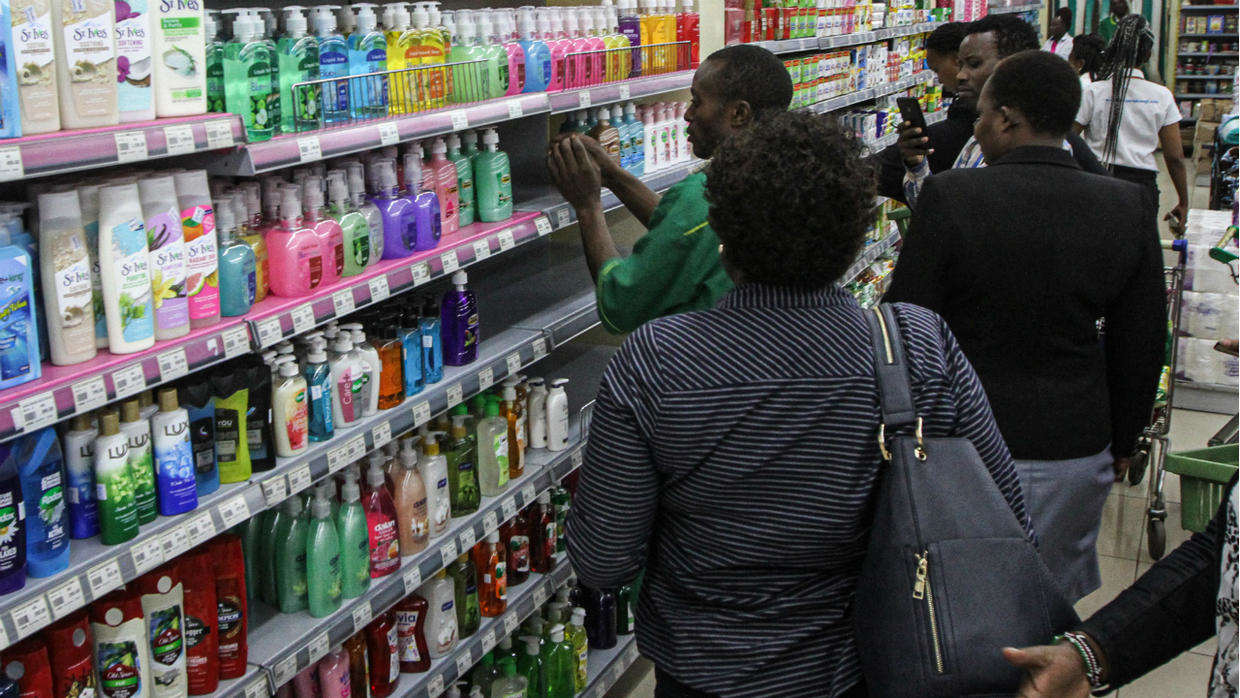
Cases of the new coronavirus are ramping up in Africa, with six new countries announcing confirmed infections in the past 24 hours.
Across Africa, at least 17 of the continent’s 54 countries have now registered COVID-19 cases. The majority of these cases are imported, authorities say.
On Friday, Kenya, Guinea and Ethiopia reported their first cases, while Gabon and Ghana did so late Thursday. Sudan also reported its first case, a person who had already died.
Experts warn that on the continent of more than 1.3 billion people, containment is key as Africa’s already strained health systems could likely lead to a higher mortality rate and deeper crisis that would have global impact.
>> Read more: Is Africa, with its low rates so far, ready to face the coronavirus pandemic?
African countries only began reporting cases in February, and most have been imported by travelers from Europe and the US.
South Africa announced eight new cases Friday, bringing its total to 24. Amid growing worry across the country, the military is preparing to repatriate 121 South African students from the epicenter of the outbreak, Wuhan, China. The returned students and the military on the flight will immediately be placed in quarantine.
Africa has so far been good at containing the virus because they have detected cases early, said Dr. Mary Stephen, technical officer at the World Health Organization regional office in Brazzaville, Republic of Congo.
The continent’s numbers are low compared to the US, Europe and especially Asia, where the virus originated, but experts and foundations warn that the emergence of COVID-19 on the African continent could be catastrophic given the fragile health systems in several countries.
“From the beginning we knew the continent is at risk,” Stephen told The Associated Press.“The uniqueness of Africa is the fact that one, we have a large population,” she said, adding that the continent’s health systems are “dealing with a lot of other emergencies at the same time”, including Ebola.
The goal is to detect cases quickly, isolate and manage them, she said. “We want to prevent community transmission,” she said.
‘Very transparent’
The vast majority of people recover from the new virus. The number of COVID-19 cases worldwide has surpassed 120,000, and 60,000 people have already recovered. According to the World Health Organization, people with mild illness recover in about two weeks, while those with more severe illness may take three to six weeks to recover.
Africa’s hospitals may not be adequately prepared to care for large numbers of people who may need intensive care and ventilators, say health experts.
At the start of the outbreak only two African countries had the capacity to test for COVID-19 and now 43 countries have laboratories to detect cases, according to the Africa CDC, based in Addis Ababa, Ethiopia. It says all the labs have kits to carry out 100 to 200 tests. The WHO and CDC are prepared to provide additional kits for 1,000 tests to any country reporting a case.
Communication has been essential, according to the WHO’s Stephen, who said that media and social media attention have helped.
“The governments have also been very transparent,” and have reported cases as soon as they are detected, she said.
Several African governments have already closed borders, including Chad and Gabon, or have suspended official travel.
Low volume of contact
The most likely reason Africa has such a low number of cases is because of the low volume of contact between the continent and the world, including fewer planes and people coming here, said Augustin Augier, executive director of the non-governmental organization the Alliance for International Medical Action, known as ALIMA.
However, he warned, it’s only a matter of time until Africa catches up in cases and the result could be a higher mortality rate.
“The worries are very high because in a certain number of countries, particularly in sub-Saharan Africa, the health systems are already weak … so if the outbreak is happening as well in these areas, we can expect a much higher mortality rate than in Europe or Asia,” he said.
Despite all the preparations being made by governments, “The most serious cases will not have access to the people and quality of care that they deserve and could expect elsewhere,” he said. “At one point this crisis will endanger the capacity of humanitarian and relief organizations.”
More importantly, a global strategy needs to be found, he stressed, saying that if it hits hard in Africa, it will only circle back to the US and Europe.
Dr. Jean-Jacques Muyembe, who has headed Congo’s response to Ebola, warned that even with preparation COVID-19 presents major challenges.
If the virus spreads locally and circulates in places like Congo where there are not as many prevention methods, “we’re going to face huge problems.”
“It would be a mistake to minimize the disease … we must take this very seriously and do everything so that the chains of transmission are known so that we stop its expansion.”
(FRANCE 24 with AP)
Source: France 24
